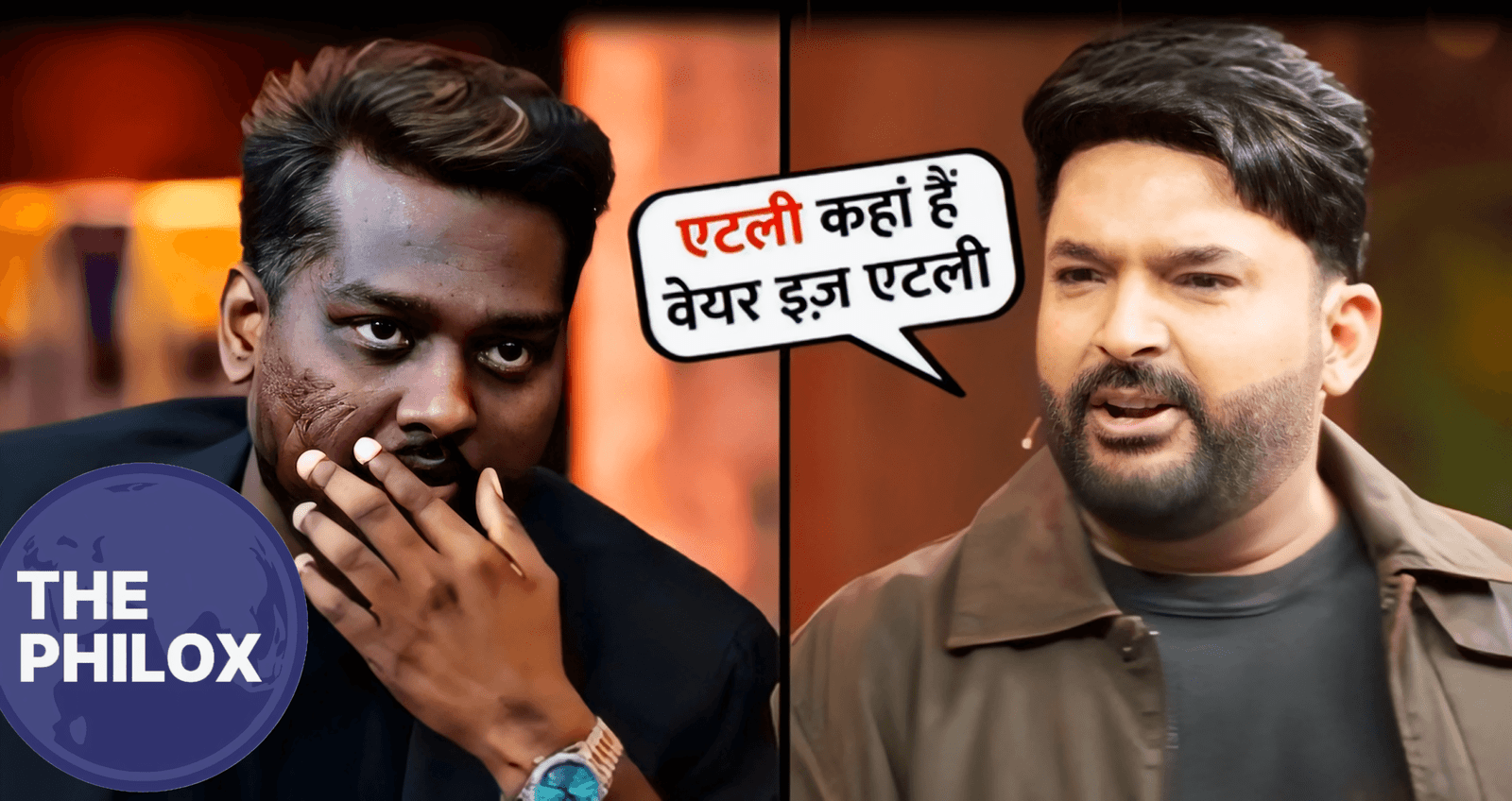
Kapil Sharma's History of Racist Remarks Against Guest and Audiences
While he remains a household name in India for his comedic talents and as the host of “The Great Indian Kapil Show,” his style of comedy often raised eyebrows for crossing the boundary between being humorous and insensitive at times.
As a matter of fact, when films’ director Atlee Kumar recently appeared in one of his episodes, racial sensitivity attached to comments made by the person gained him much traction for the incident revealed a discourse about the high levels of colorism and racism prevalent within Indian entertainment.
The Atlee Kumar Incident
December 2024: In the finale of “The Great Indian Kapil Show,” the director of the movie “Baby John” came along with his co-actors Varun Dhawan, Keerthy Suresh, and Wamiqa Gabbi for the promotion of the movie. At that episode, Kapil asked Atlee sarcastically whether people take him seriously because he looks too young.
Atlee reacted beautifully and said, “Don’t judge a person by his looks; judge them by their heart.”.
Even though Atlee remained cool while responding, a section of the audience felt that Sharma’s statement was a racist remark against Atlee’s complexion, and this sparked accusations of racism.
Public Reaction and Sharma’s Response
The incident was widely discussed on social media with many people criticizing Sharma for his apparent insensitivity.
He came on social media to counterattack the backlashing people. “Dear sir, can you pls explain me where n when I talked about looks in this video? pls don’t spread hate on social media.”
This led to mixed response, where some agreed with Sharma, “Sharma was talking about how Atlee looked youthful but others did not”.
Conclusion: Colorism issues in Indian entertainment it is not new to us.
Sharma’s statement is just the tip of the iceberg regarding the Indian entertainment industry, where colorism is a chronic malady.
Colorism in Bollywood and Indian television has been there for years, where it places the actors with lighter skin tones at the center and shunts all others to the periphery.
Freida Pinto is a Hollywood actress who won an Oscar for her role in “Slumdog Millionaire.” She was rejected so many times in Bollywood due to her color.
Similarly, acclaimed actor Nawazuddin Siddiqui has spoken about the industry’s biases, revealing that he faced discrimination and was often limited to minor roles because of his darker skin.
He highlighted the industry’s inclination towards casting fair-skinned actors, which perpetuates stereotypes and marginalizes talented individuals based on their complexion.
Instances of Racism Faced by Black Actors
While it wrestles mainly with colorism within Indian entertainment, there have indeed been instances revealing broader racial insensitivities.
Blackface in Bollywood has been pretty contentious: the use of darkened skin to portray certain characters by actors. The portrayals are outdated and derogatory, depicting negative stereotypes among Black people.
This industry hardly puts Black faces or characters into limelight; as a result, it tends to resort to caricature, lacking authenticity and depth. Underrepresentation and misrepresentation promote skewed perception and the racial biases in the media.
Need for Change
The Kapil Sharma and Atlee Kumar story is a reflection of the wider problems of colorism and racism. It underlines the need for introspection along with modification in the entertainment industries.
Diversity or inclusivity in the entertainment industries does not merely apply to not saying racist or offending remarks; it calls for a system difference in casting policy, storytelling, or representation.
Educating entertainers and audiences to the implications bred by colorist or racist humour is important.
The responsibility, in this sense, falls onto comedians as well as on content makers regarding content not letting it proliferate demeaning stereotypes; viewers have a role to digest content with critical thinking and pinpoint incidents of sensitivities and prop alternative narratives.
Kapil Sharma’s racist remarks against Atlee Kumar have opened a much-needed dialogue about the pervasive issues of colorism and racism in the Indian entertainment industry. Although Sharma has defended his comments, the incident has highlighted the thin line between humor and insensitivity.
It is imperative for the industry to reflect on these issues, fostering an environment that celebrates diversity and shuns discriminatory practices. Only through collective efforts can Indian entertainment become more inclusive and respectful to everyone irrespective of skin tone or race.
Stay Connected and Share Your Stories
For all those inspired by stories of resilience and ambition, follow us on X/Twitter and on Instagram . For those with untold stories that you would love to share, please send them to contact@thephilox.com








2 thoughts on “Kapil Sharma’s History of Racist Remarks Against Guest and Audiences”